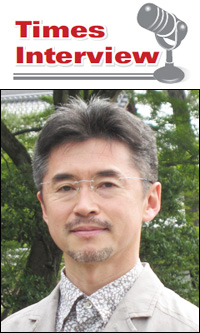‘1965 treaty didn’t settle all issues’
Japan’s accountability for occupation remains outstanding
This is the third of a series of interviews regarding how Japan should take responsibility for its colonial rule in Korea; and the 1965 Treaty on Basic Relations between Republic of Korea and Japan ― ED.
A Japanese expert on Korea-Japan relations said Tokyo’s assertion that the compensation issue was settled under the 1965 treaty is wrong as it fails to recognize imperial Japan’s colonial occupation and damage inflicted upon Korea.
“Affected by the two former treaties, Japan abandoned the recognition of colonial indemnity in the Treaty on Basic Relations signed between Korea and Japan in 1965,” said Osamu Ota, a professor of the Graduate School of Global Studies at Doshisha University in Kyoto, Japan.
“The Treaty of Peace with Italy and the San Francisco Peace Treaty signed respectively in 1947 and 1951 turned out to be unfavorable to the colonized states, reflecting the interest of the allied forces, Italy and Japan,” said Ota in a phone interview with The Korea Times, Tuesday. “Those treaties only deal with war compensation without touching on the responsibility of colonial occupation.”
The peace treaty signed between 20 allied powers and Italy distinctly distinguishes the status of countries that waged war against Italy and that were Italian colonies.
A provision stipulates the liability of Italy to give war reparations and to return cultural properties that were stolen from Albania and Ethiopia as they were recognized as having been invaded by fascist Italy. In contrast, former Italian colonies such as Libya were not given the compensation package following a document attached to the treaty which writes “(compensation mentioned) does not apply to former colonies of Italy.”
With the 1947 peace treaty serving as a basic understanding toward the past colonial rule, the Japanese professor claimed the San Francisco Peace Treaty again failed to question the past imperialist atrocities.
In Article 4 of the San Francisco treaty, the issue of colonial compensation is passed on to the bilateral level between Japan and its former colonies.
“The series of actions paved the way for Japan to overlook the past atrocities in Korea up to the signing of the Korea-Japan Claims Settlement Agreement (attached to the 1965 basic relations treaty),” said Ota.
Under the agreement, Seoul received $800 million in grants and loans, exempting Tokyo of any responsibility regarding its colonial rule on Korean (1910-1945).
“So to say, when seen from the ex-colonies side, the allied forces led by the United States are accomplices as they shared the mutual interest with Italy and Japan of not questioning colonialism.”
To this end, the Japanese expert suggested Seoul and Tokyo make a new bilateral pact or, if not, adopt a declaration that holds Japan responsible for imperialist atrocities such as the sexual enslavement of Korean women and forcible mobilization of Korean laborers.
“No backup measures have been made since the apology made by Tomiichi Murayama, the then Prime Minister of Japan, in 1995,” Ota said. “The apology hints at Japan’s possible shift in its position to truly acknowledge its past wrongdoings and compensate Korean victims who suffered under colonization.”
Meanwhile, Ota praised the Korean Supreme Court’s ruling on May 24 which recognized the individual right to claim compensation for damages incurred from the colonial occupation.
“I was surprised myself to hear the news. It is an important ruling together with the one made by the Constitutional Court last year,” said Ota. “Those are big steps shedding new light on Japan’s past wrongdoing.”
Last August, the Constitutional Court said the government was being unconstitutional in not acting to resolve the comfort women issue with Japan.
The professor is expected to present a related article during an academic forum hosted by the state-run Northeast Asia History Foundation (NAHF) in Seoul, Friday. <The Korea Times/Chung Min-uck>


























































